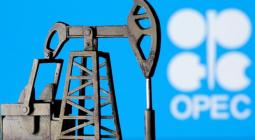Victoria blocks AGL's gas terminal on environmental grounds.

Rejection comes as company criticised over plans to split its business in two as part of a move to clean up its emissions profile.
The Victorian government has rejected on environmental grounds a proposal from energy giant AGL to build a gas import terminal at Crib Point in Western Port.
It came as the company also came under criticism from climate campaigners over a plan to spin off its high-polluting coal power plants that would allow it to rebrand the clean part of its business as “new AGL”.
The Andrews government on Tuesday blocked the proposed liquefied natural gas (LNG) import hub after finding discharged chemicals would have had “unacceptable effects” on the local environment, including a nearby Ramsar-listed wetland of international significance.
The 300m-long floating terminal was planned for a site 10km north of tourist hotspot Phillip Island, and would have been 12km from the nearest marine park.
Victoria’s planning minister, Richard Wynne, said the government’s decision was based on an environmental effects statement by AGL and energy infrastructure company APA Group, a report on the statement by an independent committee, and about 6,000 public submissions.
“This has been an exhaustive, open and transparent process and this is the right outcome for the local community, the environment and Victoria as a whole,” Wynne said in a statement.
“It’s very clear to me that this project would cause unacceptable impacts on the Western Port environment and the Ramsar wetlands. It’s important that these areas are protected.”
AGL said it would review and consider its position. It said it had already spent about $130m of the total expenditure on the project.
The company has been planning the terminal since 2018. It argued it was necessary to keep the price of gas low and address a potential gas shortage in the state.
But the controversial plan sparked a series of public protests, including earlier this month when people wore wetsuits to protest outside state parliament.
The community group Save Westernport said “science and good sense” had won out.
“The government has listened to us and to the thousands of people in our community who have worked tirelessly to save our beautiful environment from a potential catastrophe,” group’s spokeswoman, Jane Carnegie, said. “Westernport Bay was never the place for such a monstrous, environmentally damaging project.”
The rejection came as the company revealed on Tuesday that it planned to split its business in two as part of a move to clean up its emissions profile.
It said one part of the business, dubbed New AGL, would offer electricity, gas, internet and mobile services provided using low carbon-emitting technologies. The other business, called PrimeCo, would continue operating its coal-fired power generators.
AGL’s managing director, Brett Redman, said the “accelerating market forces of customer, community and technology are driving the imperative to create this new path” and split AGL into two seperate organisations.
The Australasian Centre for Corporate Responsibility’s Dan Gocher was sceptical of the proposal.
Gocher said the company was Australia’s largest emitter, responsible for about 8% of annual emissions, and its actions would have a “real impact” on the country’s emissions trajectory.
He said the announcement ignored the “need to bring forward” the closure of two coal plants – Bayswater in NSW and Loy Yang in Victoria – “in a transition that protects the health of Hunter Valley and Latrobe Valley communities, respectively, as well as supporting the workers”.
“AGL has chosen the easy way out, leaving the hard decisions around coal closure to whoever is chosen to run PrimeCo,” Gocher said. “AGL had the opportunity to embrace the energy transition by accelerating its decarbonisation, but it has chosen to spin off its most polluting assets to the detriment of us all.”
Redman said the company would start engaging with shareholders, regulators, government and the workforce stakeholders about the change, with a goal of confirming the details by the end of the financial year.
30 March 2021
The Guardian




